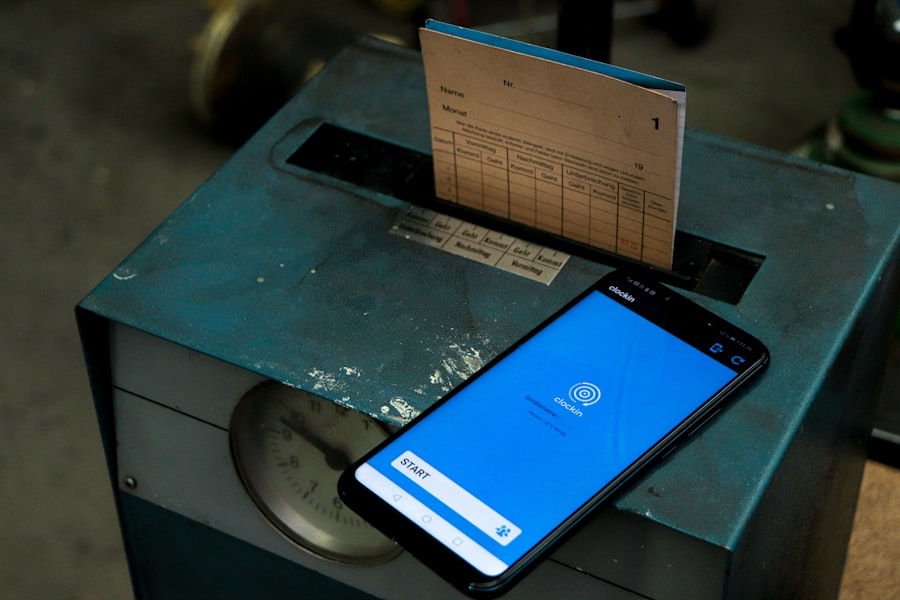
Work ethic is a multifaceted concept that encompasses an individual’s attitude toward work, their commitment to performing tasks diligently, and their overall approach to professional responsibilities. It is often characterized by traits such as reliability, dedication, and a strong sense of responsibility. A robust work ethic is not merely about the number of hours one puts in; it also involves the quality of work produced and the willingness to go above and beyond what is required.
This intrinsic motivation drives individuals to strive for excellence, ensuring that they not only meet but exceed expectations.
For instance, individuals raised in environments that prioritize hard work and perseverance are likely to develop a strong work ethic.
Conversely, those who have not been exposed to such values may struggle with motivation and commitment in their professional lives. Understanding the nuances of work ethic is crucial for both employees and employers, as it can significantly impact workplace dynamics, productivity, and overall job satisfaction.
Key Takeaways
- Work ethic is the attitude and behavior towards work, including punctuality, dedication, and accountability.
- Self-monitoring is the ability to regulate and control one’s own behavior and emotions in various situations.
- Developing a strong work ethic involves setting clear goals, managing time effectively, and being adaptable to change.
- Work ethic has a significant impact on career success, as it reflects an individual’s reliability and commitment to their work.
- Self-monitoring is crucial for professional growth, as it allows individuals to adapt to different work environments and build strong relationships with colleagues.
The Role of Self-Monitoring in Soft Skills
Self-monitoring refers to the ability to observe and regulate one’s own behavior in response to social cues and situational demands. This skill is particularly important in the realm of soft skills, which encompass interpersonal abilities such as communication, teamwork, and emotional intelligence. Individuals who possess strong self-monitoring skills are adept at adjusting their behavior based on the context they find themselves in, allowing them to navigate complex social interactions more effectively.
In a professional setting, self-monitoring can enhance collaboration and foster positive relationships among colleagues. For example, an employee who is attuned to the emotional climate of their team can adjust their communication style to better resonate with others, thereby facilitating smoother interactions. Additionally, self-monitoring enables individuals to receive feedback constructively and make necessary adjustments to improve their performance.
This adaptability is essential in today’s fast-paced work environments, where the ability to pivot and respond to changing circumstances can set successful professionals apart from their peers.
Developing a Strong Work Ethic

Cultivating a strong work ethic requires intentional effort and a commitment to personal growth. One effective strategy for developing this trait is setting clear goals and establishing a structured plan to achieve them. By breaking down larger objectives into manageable tasks, individuals can create a roadmap that guides their daily activities.
This approach not only enhances focus but also instills a sense of accomplishment as each task is completed, reinforcing the value of hard work. Another critical aspect of developing a strong work ethic is fostering resilience in the face of challenges. The ability to persevere through setbacks and maintain motivation is essential for long-term success.
Individuals can build resilience by embracing a growth mindset—viewing failures as opportunities for learning rather than insurmountable obstacles. Engaging in self-reflection can also be beneficial; by regularly assessing one’s performance and identifying areas for improvement, individuals can cultivate a proactive attitude toward their work.
The Impact of Work Ethic on Career Success
| Work Ethic Factor | Career Success Metric |
|---|---|
| Reliability | Percentage of completed projects on time |
| Productivity | Number of tasks completed per week |
| Initiative | Number of new ideas implemented |
| Adaptability | Ability to handle change and learn new skills |
| Professionalism | Feedback from colleagues and supervisors |
A strong work ethic can significantly influence an individual’s career trajectory. Employers often seek candidates who demonstrate reliability, initiative, and a commitment to excellence. Those who consistently exhibit these traits are more likely to be entrusted with greater responsibilities and leadership roles within an organization.
For instance, an employee who consistently meets deadlines and produces high-quality work may be considered for promotions or special projects, thereby accelerating their career advancement. Furthermore, a solid work ethic contributes to building a positive professional reputation. Colleagues and supervisors are more likely to respect and trust individuals who demonstrate dedication and integrity in their work.
This respect can lead to valuable networking opportunities and collaborations that further enhance career prospects. In contrast, a lack of work ethic can hinder professional growth, as individuals may find themselves overlooked for advancement or facing disciplinary actions due to poor performance.
Self-Monitoring and Professional Growth
Self-monitoring plays a pivotal role in facilitating professional growth by enabling individuals to assess their strengths and weaknesses accurately. By regularly evaluating their performance and seeking feedback from peers and supervisors, professionals can identify areas where they excel and those that require improvement. This self-awareness is crucial for setting realistic goals and developing targeted strategies for skill enhancement.
Moreover, self-monitoring encourages continuous learning and adaptability—two essential components of professional growth in an ever-evolving job market. For example, an employee who recognizes that they struggle with public speaking can take proactive steps to improve this skill through workshops or practice sessions. By actively engaging in self-improvement efforts, individuals not only enhance their capabilities but also demonstrate a commitment to their professional development, which can be highly valued by employers.
The Link Between Work Ethic and Personal Integrity

Work ethic is closely intertwined with personal integrity, as both concepts emphasize the importance of honesty, accountability, and ethical behavior in professional settings. Individuals with a strong work ethic are often characterized by their commitment to doing what is right, even when faced with challenges or temptations to cut corners. This alignment between work ethic and integrity fosters trust among colleagues and supervisors, creating a positive workplace culture.
For instance, an employee who consistently adheres to ethical standards while completing tasks demonstrates reliability and builds credibility within their organization. This trust not only enhances team dynamics but also contributes to overall job satisfaction. Conversely, a lack of integrity can undermine an individual’s work ethic; if employees engage in dishonest practices or fail to take responsibility for their actions, it can lead to a toxic work environment where collaboration suffers.
Tips for Improving Work Ethic and Self-Monitoring Skills
Improving work ethic and self-monitoring skills requires a proactive approach that encompasses various strategies. One effective method is establishing a routine that prioritizes productivity and accountability. By creating a structured daily schedule that includes dedicated time for focused work, individuals can cultivate discipline and enhance their overall work ethic.
Additionally, incorporating regular breaks into this routine can help maintain energy levels and prevent burnout. Another valuable tip is to seek feedback from peers or mentors regularly. Constructive criticism provides insights into areas for improvement and reinforces the importance of self-monitoring.
Engaging in open discussions about performance can also foster a culture of accountability within teams, encouraging everyone to strive for excellence collectively. Furthermore, setting personal benchmarks for success can motivate individuals to push themselves beyond their comfort zones while tracking progress over time.
The Connection Between Work Ethic and Leadership
The relationship between work ethic and leadership is profound; effective leaders often exemplify strong work ethics that inspire their teams to follow suit. Leaders who demonstrate dedication, accountability, and resilience set the tone for organizational culture, encouraging employees to adopt similar values in their own work practices. This alignment fosters an environment where hard work is recognized and rewarded, ultimately driving collective success.
Moreover, leaders with a strong work ethic are more likely to earn the respect and trust of their teams. When employees observe their leaders putting in the effort and maintaining high standards, they are motivated to emulate these behaviors. This creates a ripple effect throughout the organization, where commitment to excellence becomes ingrained in the company’s ethos.
In contrast, leaders who lack a strong work ethic may struggle to inspire their teams or foster loyalty among employees, ultimately hindering organizational performance. In conclusion, understanding the intricacies of work ethic and self-monitoring reveals their critical roles in personal development and professional success. By cultivating these traits through intentional practices and fostering an environment that values integrity and accountability, individuals can enhance their career prospects while contributing positively to their organizations.
If you’re interested in enhancing your work ethic and self-monitoring skills, you might also find value in exploring how a positive attitude can significantly impact your professional environment. A positive attitude complements a strong work ethic by fostering a productive and collaborative workplace. To learn more about the importance of maintaining a positive outlook and how it can synergize with your self-monitoring efforts, I recommend reading the article “Soft Skills: Positive Attitude” which provides insightful tips and strategies. You can access it here: Soft Skills: Positive Attitude.
FAQs
What is work ethic?
Work ethic refers to a set of values and beliefs that an individual holds regarding their work and the effort they put into it. It encompasses qualities such as reliability, punctuality, dedication, and a strong sense of responsibility towards one’s job.
What is self-monitoring in the context of work ethic?
Self-monitoring in the context of work ethic refers to the ability of an individual to assess and regulate their own behavior, performance, and adherence to work-related values and standards. It involves being aware of one’s actions and making adjustments to ensure they align with the desired work ethic.
Why is self-monitoring important in the workplace?
Self-monitoring is important in the workplace as it allows individuals to maintain a high level of work ethic and professionalism. It enables employees to identify areas for improvement, make necessary adjustments, and demonstrate a strong commitment to their work and the organization.
How can individuals improve their self-monitoring skills in the workplace?
Individuals can improve their self-monitoring skills in the workplace by setting clear goals and expectations for their work, regularly assessing their performance and behavior, seeking feedback from colleagues and supervisors, and actively seeking opportunities for self-improvement and professional development. Additionally, practicing mindfulness and self-reflection can also help individuals enhance their self-monitoring abilities.





